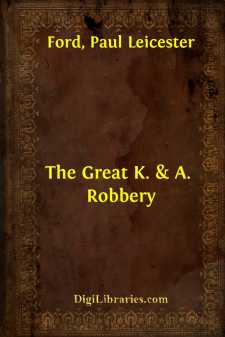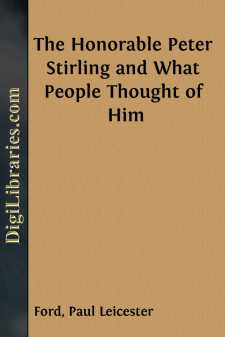Categories
- Antiques & Collectibles 13
- Architecture 36
- Art 48
- Bibles 22
- Biography & Autobiography 813
- Body, Mind & Spirit 142
- Business & Economics 28
- Children's Books 15
- Children's Fiction 12
- Computers 4
- Cooking 94
- Crafts & Hobbies 4
- Drama 346
- Education 46
- Family & Relationships 57
- Fiction 11829
- Games 19
- Gardening 17
- Health & Fitness 34
- History 1377
- House & Home 1
- Humor 147
- Juvenile Fiction 1873
- Juvenile Nonfiction 202
- Language Arts & Disciplines 88
- Law 16
- Literary Collections 686
- Literary Criticism 179
- Mathematics 13
- Medical 41
- Music 40
- Nature 179
- Non-Classifiable 1768
- Performing Arts 7
- Periodicals 1453
- Philosophy 64
- Photography 2
- Poetry 896
- Political Science 203
- Psychology 42
- Reference 154
- Religion 513
- Science 126
- Self-Help 84
- Social Science 81
- Sports & Recreation 34
- Study Aids 3
- Technology & Engineering 59
- Transportation 23
- Travel 463
- True Crime 29
The True George Washington [10th Ed.]
Description:
Excerpt
I
FAMILY RELATIONS
Although Washington wrote that the history of his ancestors was, in his opinion, "of very little moment," and "a subject to which I confess I have paid very little attention," few Americans can prove a better pedigree. The earliest of his forebears yet discovered was described as "gentleman," the family were granted lands by Henry the Eighth, held various offices of honor, married into good families, and under the Stuarts two were knighted and a third served as page to Prince Charles. Lawrence, a brother of the three thus distinguished, matriculated at Oxford as a "generosi filius" (the intermediate class between sons of the nobility, "armigeri filius," and of the people, "plebeii filius"), or as of the minor gentry. In time he became a fellow and lector of Brasenose College, and presently obtained the good living of Purleigh. Strong royalists, the fortunes of the family waned along with King Charles, and sank into insignificance with the passing of the Stuart dynasty. Not the least sufferer was the rector of Purleigh, for the Puritan Parliament ejected him from his living, on the charge "that he was a common frequenter of ale-houses, not only himself sitting dayly tippling there … but hath oft been drunk,"—a charge indignantly denied by the royalists, who asserted that he was a "worthy Pious man, … always … a very Modest, Sober Person;" and this latter claim is supported by the fact that though the Puritans sequestered the rich living, they made no objection to his serving as rector at Brixted Parva, where the living was "such a Poor and Miserable one that it was always with difficulty that any one was persuaded to accept of it."
Poverty resulting, John, the eldest son of this rector, early took to the sea, and in 1656 assisted "as second man in Sayleing ye Vessel to Virginia." Here he settled, took up land, presently became a county officer, a burgess, and a colonel of militia. In this latter function he commanded the Virginia troops during the Indian war of 1675, and when his great-grandson, George, on his first arrival on the frontier, was called by the Indians "Conotocarius," or "devourer of villages," the formidable but inappropriate title for the newly-fledged officer is supposed to have been due to the reputation that John Washington had won for his name among the Indians eighty years before.
[Illustration: TABLET TO LAURENCE WASHINGTON AND HIS FAMILY IN SULGRAVE
CHURCH]
Both John's son, Lawrence, and Lawrence's son, Augustine, describe themselves in their wills as "gentlemen," and both intermarried with the "gentry families" of Virginia. Augustine was educated at Appleby School, in England, like his grandfather followed the sea for a time, was interested in iron mines, and in other ways proved himself far more than the average Virginia planter of his day. He was twice married,—which marriages, with unconscious humor, he describes in his will as "several Ventures,"—had ten children, and died in 1743, when George, his fifth child and the first by his second "Venture," was a boy of eleven....


![The True George Washington [10th Ed.]](https://digilibraries-com.s3.eu-central-1.amazonaws.com/covers/d97070d4-6258-48ea-a40a-53d98fa78a5c.jpg)

